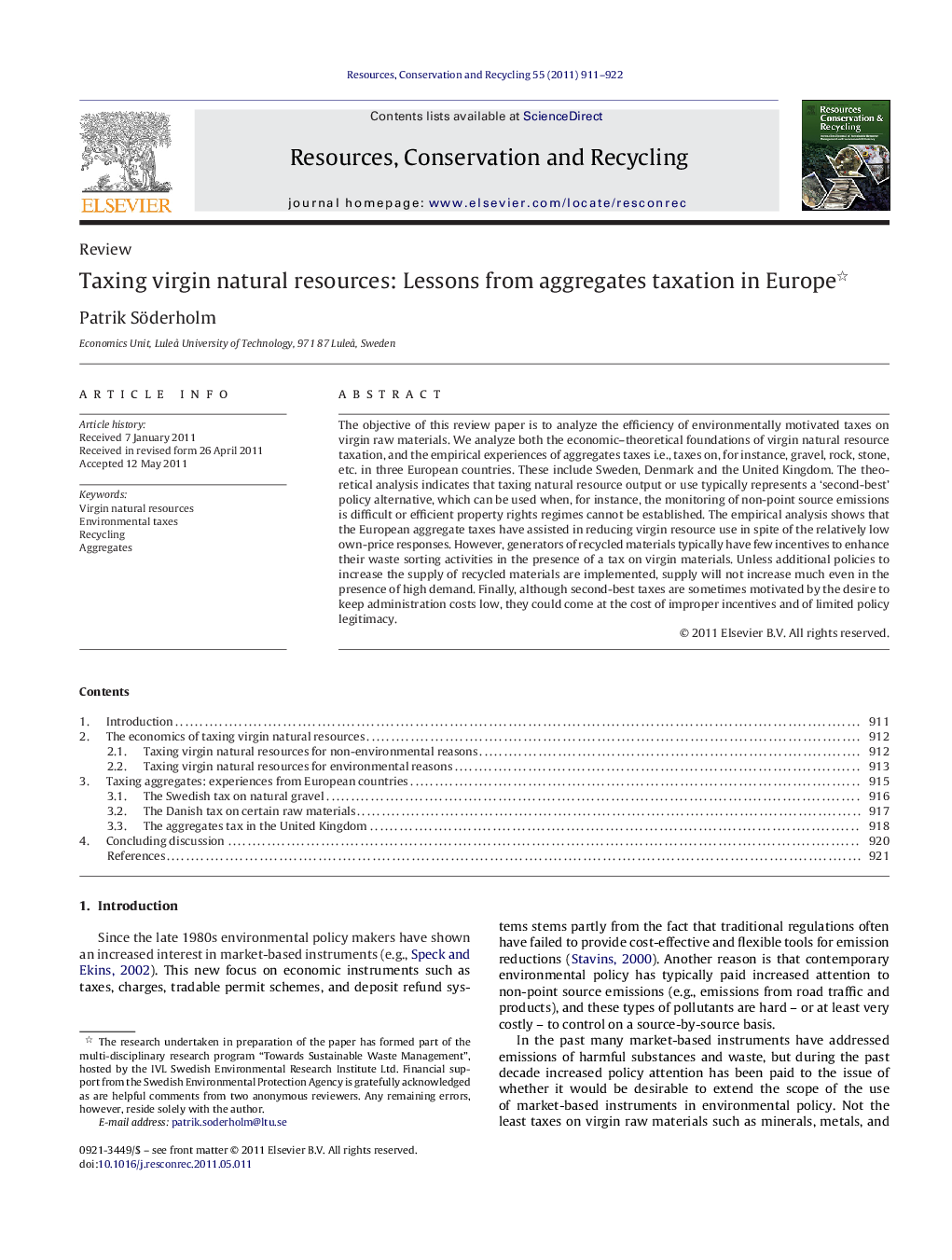| Article ID | Journal | Published Year | Pages | File Type |
|---|---|---|---|---|
| 1063444 | Resources, Conservation and Recycling | 2011 | 12 Pages |
The objective of this review paper is to analyze the efficiency of environmentally motivated taxes on virgin raw materials. We analyze both the economic–theoretical foundations of virgin natural resource taxation, and the empirical experiences of aggregates taxes i.e., taxes on, for instance, gravel, rock, stone, etc. in three European countries. These include Sweden, Denmark and the United Kingdom. The theoretical analysis indicates that taxing natural resource output or use typically represents a ‘second-best’ policy alternative, which can be used when, for instance, the monitoring of non-point source emissions is difficult or efficient property rights regimes cannot be established. The empirical analysis shows that the European aggregate taxes have assisted in reducing virgin resource use in spite of the relatively low own-price responses. However, generators of recycled materials typically have few incentives to enhance their waste sorting activities in the presence of a tax on virgin materials. Unless additional policies to increase the supply of recycled materials are implemented, supply will not increase much even in the presence of high demand. Finally, although second-best taxes are sometimes motivated by the desire to keep administration costs low, they could come at the cost of improper incentives and of limited policy legitimacy.
► We analyze the efficiency of environmental taxes on virgin natural resources. ► The paper addresses the economic–theoretical motives for such taxation policies. ► It reviews the empirical experiences of aggregate taxes in Europe. ► Taxes on virgin natural resources are typically second-best policy options. ► They need to be complemented by policies that increase supply of recycled materials.
